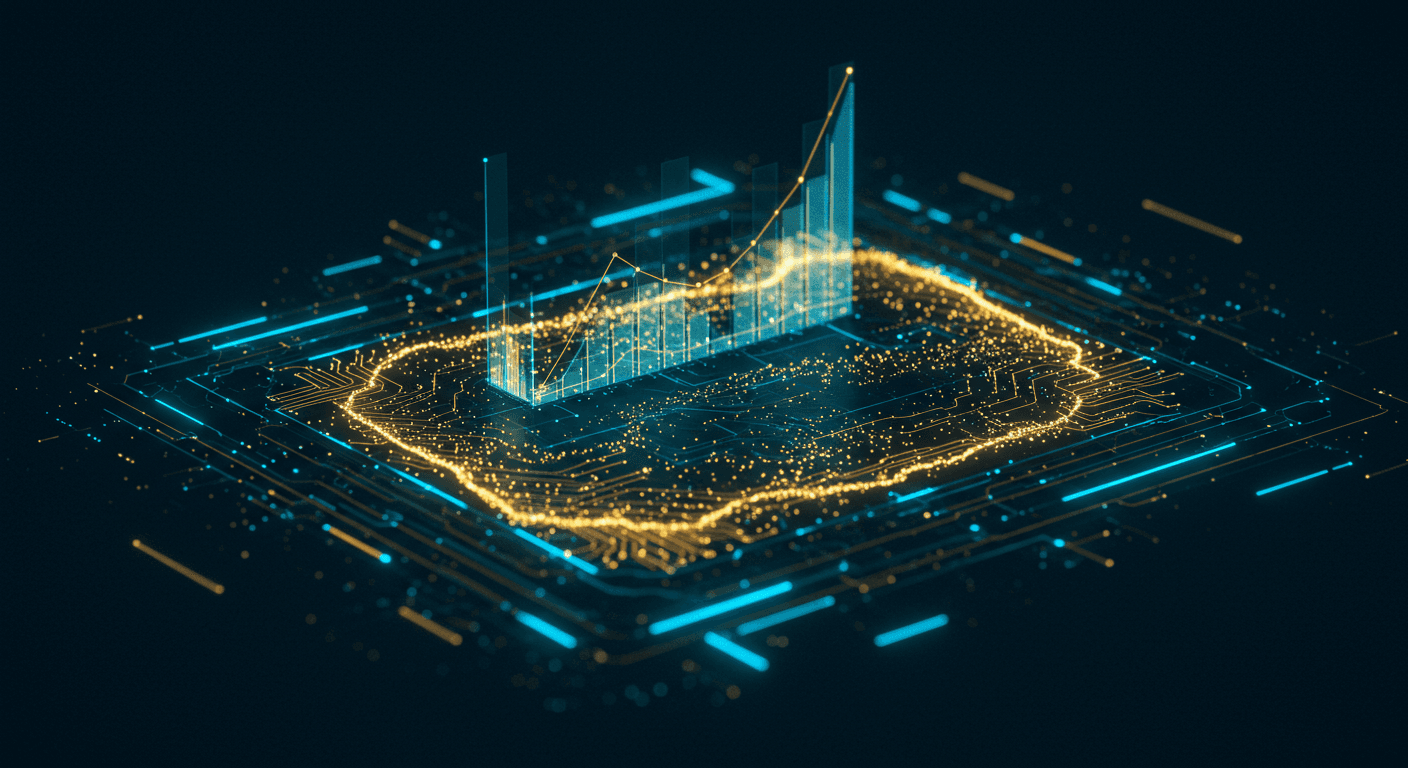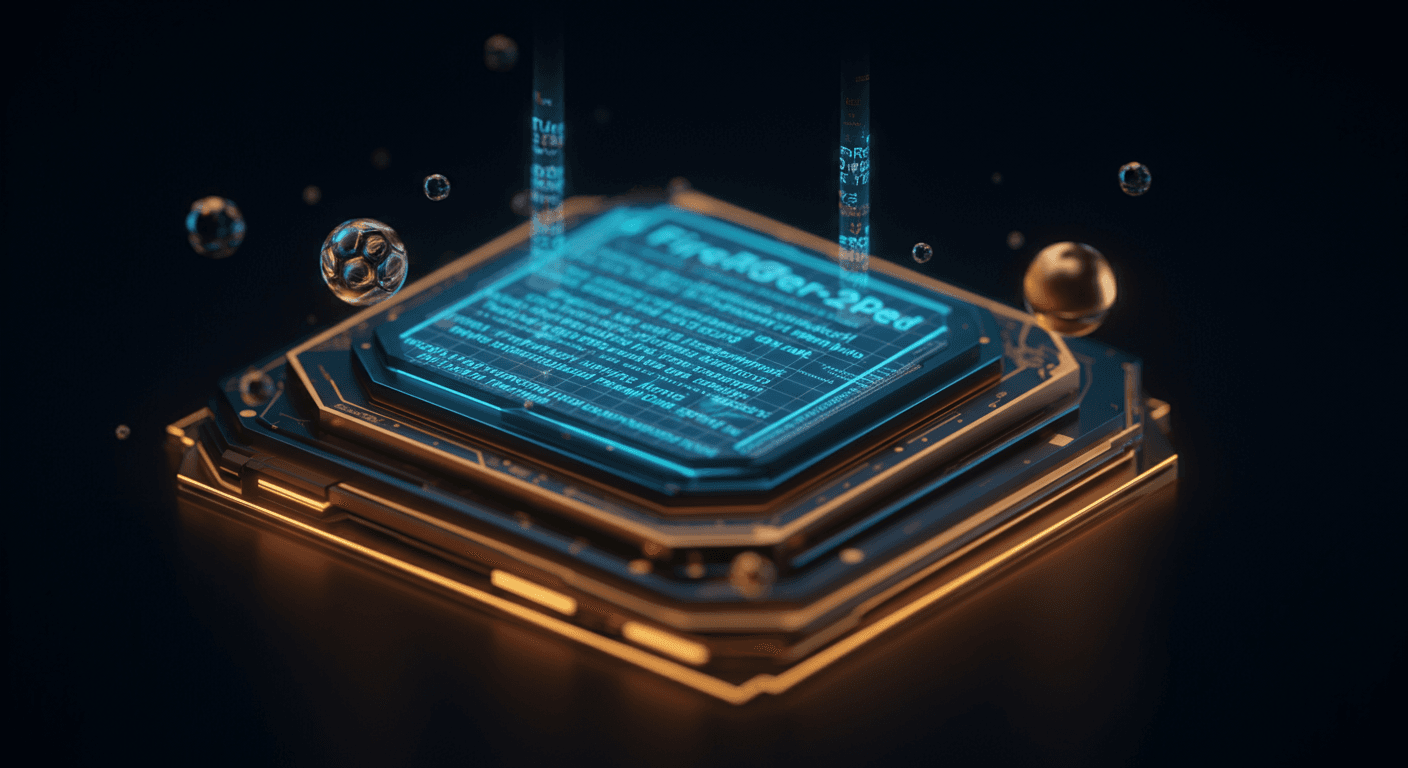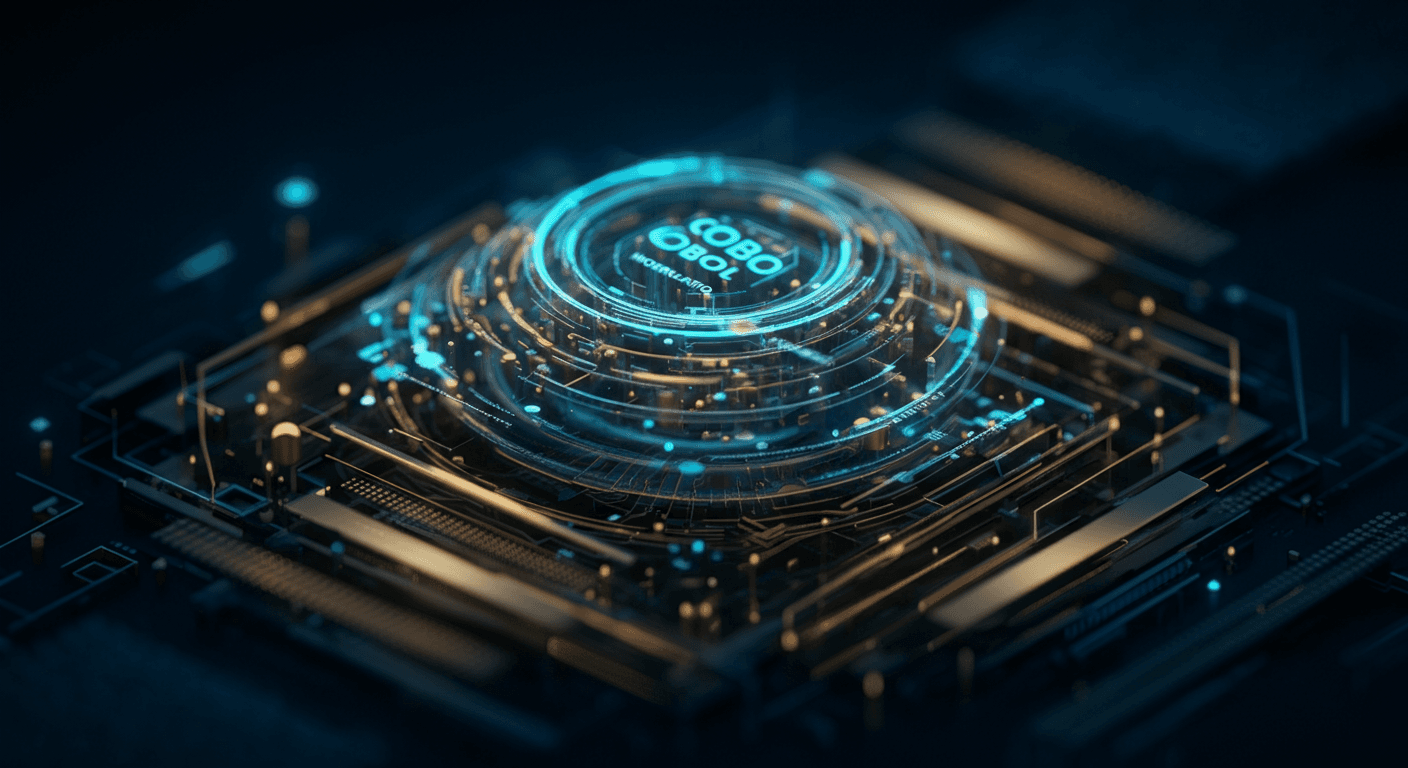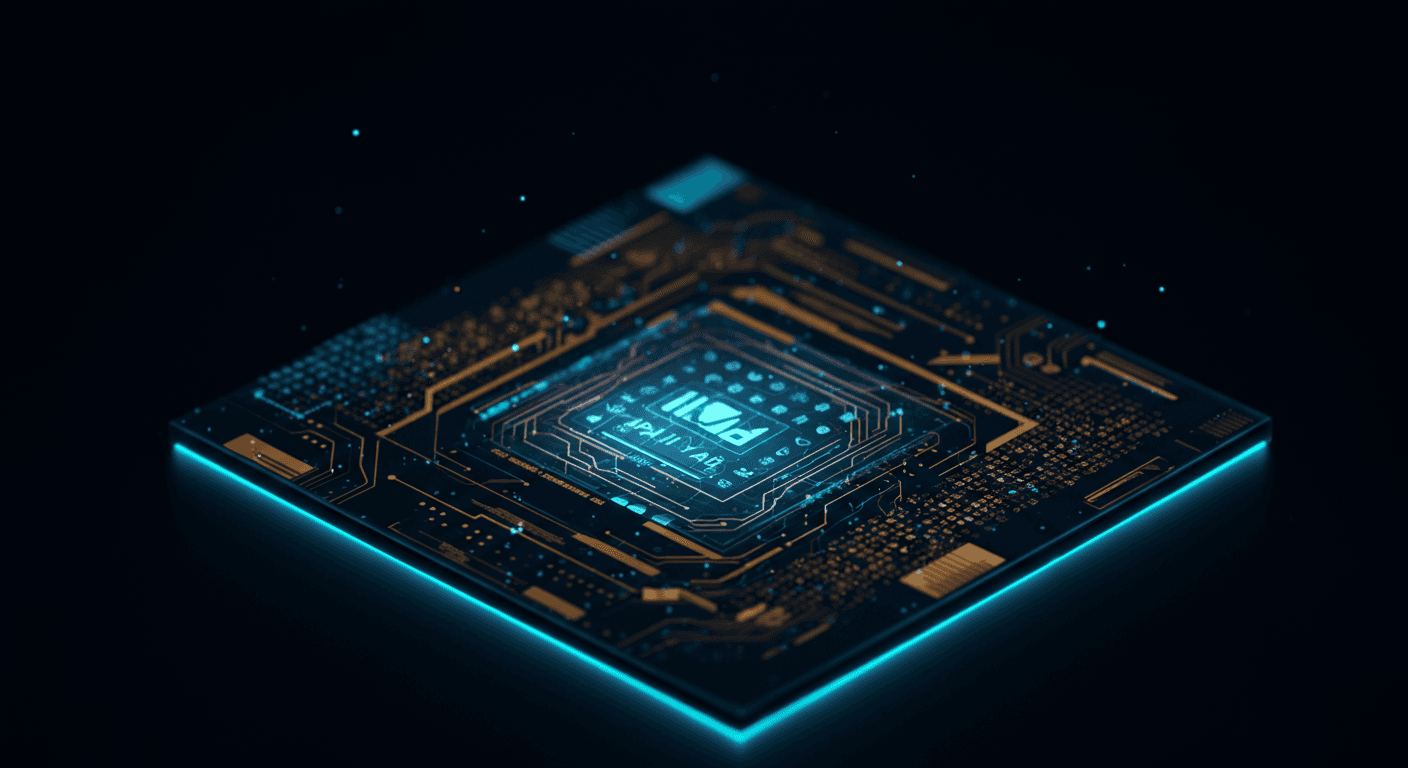Notion's Agentic AI Pivot: A Deep Dive into the Tech Stack Revolution

Here's the thing: building true agentic AI capabilities isn't like slapping a new coat of paint on an old house; sometimes, you need to rebuild from the foundation up.
The Agentic AI Imperative
Agentic AI refers to AI agents that autonomously perform tasks and achieve specific goals. Think of it as giving AI the keys to the car instead of just telling it which direction to go. The goal is to automate complex workflows, making productivity tools far more proactive. Current productivity software often falls short, requiring constant human oversight. For a deep agentic AI definition, check out the Learn section.Legacy Tech Stack Limitations
Notion, like many established platforms, was built before the agentic AI revolution truly took off. Incremental updates could only go so far because the underlying architecture wasn't designed to handle the demands of AI agents needing to autonomously:- Access and manipulate data
- Reason about complex workflows
- Make decisions on the fly
The Demand and the Drive
The explosion in demand for AI-powered productivity tools isn't just hype, it stems from the desire to automate tedious tasks and free up time for more strategic work. Notion's pivot is driven by business motivations: to stay competitive, attract users seeking cutting-edge features, and unlock entirely new levels of functionality. The AI-powered productivity future depends on it. This move comes at a cost, demanding resources and time, but opens the door to innovations in the limitations of current productivity software.The Evolution of Productivity Tools: From Task Management to AI-Driven Agents
We're moving from simple task management to a world where AI anticipates our needs and proactively manages our work. Notion's shift reflects a broader trend of embracing AI as a core component of productivity, as opposed to a mere add-on feature. This means more than just integrating ChatGPT; it means re-architecting platforms to empower AI agents.Ultimately, Notion's radical overhaul signals a serious commitment to the agentic AI revolution, aiming to transform how we interact with productivity software.
Notion's quest to embed agentic AI feels less like a sprint and more like an ultra-marathon of architectural shifts.
Deconstructing the Old Stack: Identifying the Bottlenecks
Before Notion AI could truly embrace agentic AI, its original architecture needed a serious assessment; Notion AI enhances productivity by integrating directly within the Notion workspace, offering features like automated writing, summarizing, and brainstorming. Like many fast-growing platforms, Notion's original architecture wasn't initially designed to handle the demands of complex AI operations.
- Programming Languages & Databases: Early versions likely relied on a mix of Javascript, Python, and potentially Go for backend services, alongside databases optimized for document storage rather than AI-driven data processing.
- Scalability Challenges: CTOs often cite scaling AI applications as a major pain point when retrofitting existing systems.
Technical Debt: A Silent Killer of Innovation

One of the significant hurdles is technical debt in software development. Accumulating quick fixes and workarounds over time leads to a convoluted codebase that's difficult to modify or extend. This directly impacts the ability to integrate AI effectively.
- Impact on User Experience: Ultimately, the limitations of the old stack translated to slow performance, limited features, and integration issues – impacting the user experience directly. Imagine trying to run a cutting-edge neural network on a system designed for simple document editing – you're bound to hit a wall.
- Real-Time Collaboration Limitations: Legacy architectures often struggle with the nuances of challenges of real-time collaboration, a crucial element for any AI-powered workspace.
It's not just about AI; it's about how we build it.
The New Foundation: A Modern Tech Stack for Agentic AI
Agentic AI requires more than just algorithms; it demands a robust and scalable infrastructure, and that’s exactly what powers advanced platforms today. This new foundation is meticulously engineered for performance, scalability, security, and seamless AI integration, which replaces legacy stacks.
Core Technologies
Here's a peek under the hood:- Programming Languages:
Rustis gaining popularity for its memory safety and performance, whilePythonremains a favorite for its extensive AI libraries. - Databases: Distributed databases handle massive datasets with real-time processing capabilities essential for agentic tasks.
- Cloud Infrastructure: Platforms like Amazon Web Services (AWS) and Google Cloud Platform (GCP) provide the necessary computing power and scalability. AWS is a popular cloud platform that offers a range of services, including computing power, storage, and databases, while GCP is another cloud platform that offers similar services, as well as machine learning and data analytics tools.
Serverless Computing: The Backbone of Modern AI Applications
Serverless computing allows developers to build and run applications without managing servers, which reduces operational overhead and enhances scalability.
This microservices architecture enables agentic AI functionality by breaking down complex tasks into smaller, manageable units, and this approach allows for:
- Real-time data processing.
- Enhanced collaboration between components.
- Seamless integration with AI models such as ChatGPT. ChatGPT is a conversational AI tool that can generate human-like text for a variety of applications, including chatbots, content creation, and customer service.
Notion's new AI-powered features have unlocked a whole new level of workspace efficiency.
Agentic AI in Action: New Features and User Experience

The latest tech stack powering Notion AI delivers a smarter, more intuitive experience. It’s like having a hyper-efficient digital assistant directly embedded into your workflow.
- AI-Driven Content Creation: Struggling with a blank page? Generate entire blog posts, meeting agendas, or marketing copy with simple prompts. These AI-powered content creation tools help you overcome writer's block and maintain consistent messaging.
- Automated Workflows: Say goodbye to tedious tasks with automated workflows with AI. For example, automatically summarize meeting notes, create action items, and assign tasks, all with a single click.
- Intelligent Search: No more endless scrolling! Enhanced intelligent search algorithms allow you to quickly find relevant information within your workspace, saving you precious time.
- Personalized Recommendations: Discover content and insights tailored to your needs. A sophisticated personalized recommendations engine suggests relevant pages, databases, and colleagues, maximizing productivity and sparking creativity.
These features seamlessly integrate into Notion's user interface (UI) and enhance user experience (UX). You can quickly access AI features without disrupting your existing workflow, creating a truly collaborative environment.
The Future of Work: AI as a Collaborative Partner
Notion's agentic AI heralds a shift towards AI as a collaborative partner. Instead of replacing human creativity, it augments it. These AI tools free up time and energy for higher-level thinking, strategic planning, and genuine human interaction, ultimately transforming how we approach work. Jump to our AI News section for more on these cutting-edge concepts.
Unleashing the power of AI within Notion is no longer a futuristic fantasy, but a developer's reality.
The Developer Perspective: Building on Notion's New API
Notion's shift towards agentic AI is heavily influenced by its brand-new API, a potent toolset designed to empower developers. It's like giving developers the keys to a DeLorean, where they are enabled to build AI-powered applications on the Notion API.
A Playground for Innovation
The Notion API opens doors to:
- Third-party AI integrations: Imagine a world where your favorite AI tools seamlessly integrate with your Notion workspace. This API is the bridge that connects them.
- Custom AI applications: Developers can now craft tailor-made AI solutions that cater specifically to individual or team workflows, enhancing productivity and efficiency.
- Developer Resources for AI: Notion provides comprehensive documentation, tutorials, and code samples to help developers get started and build innovative AI tools for software developers on top of Notion.
Democratizing AI: Empowering Developers to Build the Future
The true magic lies in democratizing AI. Notion's API lowers the barrier to entry, enabling a wider range of developers to participate in building third-party AI integrations and shaping the future of work.
Successful examples are already emerging, streamlining processes and adding layers of intelligence to the Notion experience.
Ultimately, with the right developer resources for AI, you will build innovative productivity collaboration tools.
The leap to agentic AI requires more than just a code rewrite; it's a full-scale migration.
The Art of Software Migration: Balancing Innovation and Stability
Migrating a large user base to a new tech stack is akin to rebuilding an airplane mid-flight – exhilarating and terrifying. The balance between innovation and stability defines success or failure. Here’s a look at the hurdles and how to clear them.
Challenges
- Disruption: Minimizing disruption is paramount.
- Data Integrity: Ensuring data integrity during migration is non-negotiable.
- Implement robust validation checks. For instance, reconcile data counts before and after migration to identify discrepancies early on.
- Legacy Code: Untangling spaghetti code can be a nightmare.
- Modern AI tools like Code Assistance AI Tools can help streamline this process.
Strategies
- Communication: Transparent and proactive communication is key.
- Use multiple channels (in-app messages, email, social media) to keep users informed about the process.
- User Feedback: Embrace user feedback throughout the migration.
- Set up feedback channels (forums, surveys) to capture user experiences and quickly address issues. This is a great example of user feedback in software development.
- Rollback Plan: Always have a well-defined rollback strategy.
Lessons Learned
- Thorough Testing: Invest heavily in testing at each stage.
- Documentation: Maintain meticulous documentation.
It's a productivity software showdown, and AI is the ultimate weapon.
The Competitive Landscape: How Notion Stacks Up
Notion AI aims to supercharge your workspace, offering AI-powered assistance for writing, brainstorming, and task management, but how does it measure up against the competition?
Here's a quick rundown:
- Coda: Coda emphasizes document-centric collaboration, but its AI capabilities are currently less integrated than Notion's. Coda shines with its advanced formula system.
- ClickUp: ClickUp focuses on project management and workflow automation. While it offers some AI features, Notion's agentic capabilities lean into broader knowledge work.
- Monday.com: Monday.com excels in visual project tracking and team communication. Its AI features primarily focus on workflow optimization.
Notion's Differentiators
Notion's success comes down to:
- Flexibility: It's a modular system. Design AI Tools, or Software Developer Tools, it's all available in Notion.
- Ease of Use: The interface is intuitive, making it easy for anyone to start using Notion AI.
- Developer Ecosystem: A strong API and growing integrations boost functionality.
The Future is AI-Powered
- Market Growth: The market for AI-powered productivity tools comparison is expanding.
- Trend: The future of AI in productivity software hinges on intelligent automation.
Notion's pivot marks a significant shift, potentially redefining how we approach work.
Here's where things get truly fascinating: the potential future developments for agentic AI, not just in Notion, but across the productivity landscape.
Future Implications: The Next Generation of Agentic AI
The trajectory of agentic AI points toward a future where our digital tools are proactive partners, anticipating our needs and automating complex tasks. It's not just about making things faster, but about enabling entirely new workflows.
Emerging Technologies: Fueling the Revolution
Several technologies stand poised to supercharge agentic AI:
- Large Language Models (LLMs): LLMs like ChatGPT are the brains behind the operation, enabling AI to understand and generate human-quality text. Imagine Notion AI seamlessly drafting project proposals based on a few bullet points.
- Reinforcement Learning: This approach allows AI agents to learn through trial and error, optimizing their actions to achieve specific goals. For instance, an AI could learn the optimal way to organize a project timeline based on historical data.
- Edge Computing: By processing data closer to the source, edge computing reduces latency and improves responsiveness. This could lead to faster, more seamless interactions with agentic AI, especially on mobile devices.
The Ethics of AI: Navigating the Uncharted Territory
"With great power comes great responsibility," said someone wise, once. (Probably.) As AI becomes more integrated into our workplaces, ethical considerations of AI must be at the forefront.
We need to address critical concerns like:
- Privacy: How do we ensure that AI agents are not collecting and using personal data without consent?
- Bias: How can we prevent AI algorithms from perpetuating existing biases in the workplace?
- Job Displacement: What steps can be taken to mitigate the potential impact of AI on employment?
AI and the Future of Work
The rise of AI will inevitably transform the future of work. While some jobs may be automated, new roles will emerge, requiring skills such as:
- AI Prompt Engineering: Crafting effective prompts to guide AI agents.
- AI Training and Evaluation: Helping AI learn and improve.
- AI Ethics and Governance: Ensuring responsible AI development and deployment.
Keywords
agentic AI, Notion, tech stack, AI, productivity, software architecture, artificial intelligence, AI agents, Notion API, workflow automation, AI-powered tools, machine learning, LLMs, Rust programming, serverless architecture
Hashtags
#AgenticAI #NotionAI #FutureOfWork #AIRevolution #TechStack
Recommended AI tools
ChatGPT
Conversational AI
AI research, productivity, and conversation—smarter thinking, deeper insights.
Sora
Video Generation
Create stunning, realistic videos & audio from text, images, or video—remix and collaborate with Sora 2, OpenAI’s advanced generative app.
Google Gemini
Conversational AI
Your everyday Google AI assistant for creativity, research, and productivity
Perplexity
Search & Discovery
Clear answers from reliable sources, powered by AI.
Cursor
Code Assistance
The AI code editor that understands your entire codebase
DeepSeek
Conversational AI
Efficient open-weight AI models for advanced reasoning and research
About the Author

Written by
Dr. William Bobos
Dr. William Bobos (known as 'Dr. Bob') is a long-time AI expert focused on practical evaluations of AI tools and frameworks. He frequently tests new releases, reads academic papers, and tracks industry news to translate breakthroughs into real-world use. At Best AI Tools, he curates clear, actionable insights for builders, researchers, and decision-makers.
More from Dr.Was this article helpful?
Found outdated info or have suggestions? Let us know!


